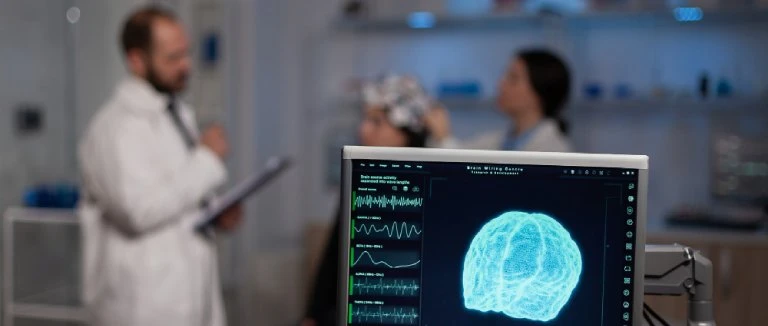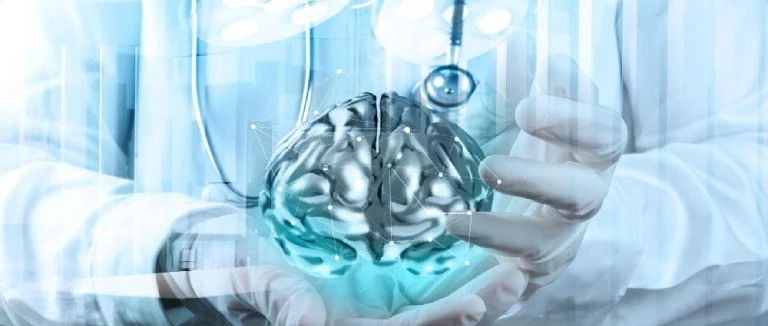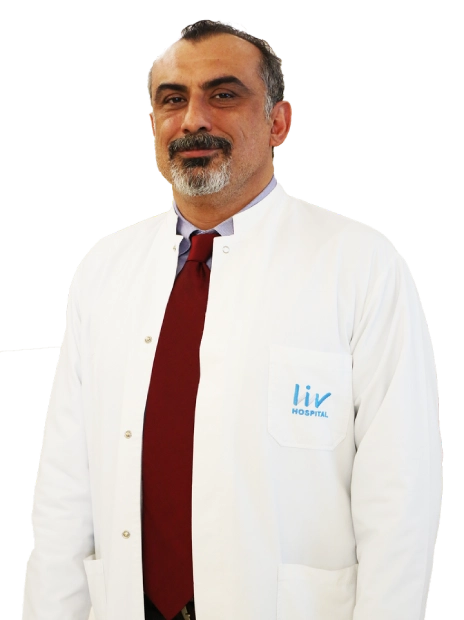Deep Brain Stimulation (DBS) in Turkey: Treatment, Benefits, and Applications
Deep Brain Stimulation (DBS) is a revolutionary medical treatment designed to regulate abnormal brain activity and provide relief for individuals suffering from various neurological and movement disorders. This innovative procedure, which involves implanting a small device in the brain, has shown remarkable success in treating conditions like Parkinson’s disease, essential tremor, dystonia, and obsessive-compulsive disorder (OCD). With its growing popularity, DBS -Deep Brain Stimulation- is now available in Turkey, a country known for its advanced medical technologies and affordable healthcare options. In this article, we will explore how DBS works, its applications, and why Turkey is becoming a sought-after destination for this life-changing procedure.

How Does Deep Brain Stimulation Procedure In Turkey Work?
Deep Brain Stimulation (DBS) works by implanting a small, battery-powered device under the skin near the collarbone. This device sends electrical impulses through electrodes implanted in targeted areas of the brain to regulate abnormal brain activity. The procedure is often guided using MRI or CT scans to ensure precise placement of the electrodes. The controlled electrical impulses help to reduce symptoms of neurological disorders and improve the patient's quality of life.
Conditions Treated With DBS
DBS -Deep Brain Stimulation is used to treat several neurological and movement disorders, including:
• Parkinson's disease Deep Brain Stimulation (DBS)- :DBS effectively reduces symptoms such as tremors, stiffness, and slowness of movement (bradykinesia) in people with Parkinson's disease. It is often recommended for patients who do not respond well to medications or experience significant side effects.
• Essential Tremor: Deep Brain Stimulation (DBS)- For individuals with essential tremor, a condition that causes uncontrollable shaking of the hands, voice, or head, DBS can significantly decrease the severity of tremors and enhance the quality of life.
• Dystonia: Deep Brain Stimulation (DBS) provides relief for various forms of dystonia, a movement disorder characterized by involuntary muscle contractions that lead to twisting, repetitive movements, or abnormal postures. It is particularly helpful for patients whose symptoms are not well managed with traditional treatments.
• Obsessive-Compulsive Disorder (OCD):In severe cases of OCD that don't respond to traditional treatments, DBS -Deep Brain Stimulation- can help reduce intrusive thoughts and compulsive behaviors.
• Epilepsy: Deep Brain Stimulation (DBS)- DBS may also be an option for patients with epilepsy whose seizures cannot be controlled with medications. It is especially considered for complex cases, such as multifocal epilepsy, where standard surgical options may not be suitable.
Deep Deep Brain Stimulation Surgery In Turkey
The process of Deep Brain Stimulation (DBS) surgery in Turkey involves several stages, from pre-surgery evaluations to post-surgery monitoring. Here's how the procedure typically unfolds:
The fundamental steps in deep brain surgery in Turkey procedure are as follows:
Before surgery, patients undergo a comprehensive evaluation, which may include brain imaging, neurological exams, cognitive testing, and other necessary assessments. Based on these results, the healthcare team determines the patient's eligibility for DBS and develops a personalized treatment plan.
The first stage of surgery involves implanting electrodes into targeted areas of the brain. This step is typically performed while the patient is awake under local anesthesia, allowing the surgical team to monitor the patient's responses and ensure precise placement of the electrodes. MRI or CT scans guide the electrodes to the exact brain region.
Next, in a separate procedure, the neurostimulator device is implanted under the skin, usually near the collarbone. The device is connected to the brain electrodes with wires that run beneath the skin.
After surgery, patients are admitted to the hospital for two to three days of close monitoring. During this time, the medical team adjusts the neurostimulator's settings to provide optimal symptom relief and minimize side effects. Ongoing follow-up visits with the healthcare provider are essential to monitor progress and make any further device adjustments needed.
The following are some possible dangers of DBS surgery:
• Bleeding: One potential complication of DBS surgery is bleeding, which can occur when a small hole is drilled in the skull to place the electrodes. This may result in neurological symptoms like weakness, confusion, or headaches, and in very rare cases, it can be life-threatening.
• Infection: There is also a risk of infection following DBS surgery. While the use of antibiotics and strict sterile techniques can help lower this risk, infections do occasionally occur and, in rare situations, may require removal of the implanted devices.

Risks of DBS Surgery
The following are some possible dangers of DBS surgery:
• Neurological complications: Placing electrodes in specific regions of the brain can, in rare cases, lead to neurological side effects such as difficulty with speech or vision, memory problems, or changes in mood.
• Hardware-related issues: Occasionally, the implanted hardware may malfunction or fail, which can require additional surgery to repair or replace the device. These complications may also cause infection, discomfort, or pain.
• Other side effects: Deep brain stimulation can sometimes cause sensations like tingling, numbness, or muscle weakness. Fortunately, these effects are usually temporary and can often be resolved by adjusting the stimulation settings.
Liv Hospital For Deep Brain Stimulation In Turkey
LIV Hospitals in Turkey provide world-class medical care to international patients, offering a full spectrum of services from early-stage therapies to preventive care. After discussing any health concerns with your doctor, you will receive a comprehensive medical evaluation to ensure the best possible treatment plan.
Liv Hospital strives to position Turkey as a leading destination for medical tourism. Committed to delivering exceptional medical services, especially in the field of stem cell therapy, Liv Hospital considers each patient's unique needs as well as the cost of living in Turkey. With seven state-of-the-art institutions, Liv Hospital sets the standard for outstanding healthcare in the country. The name "Liv," which stands for "Leading International Vision," reflects Liv Hospital's dedication to cutting-edge technology and premier medical care, making it the top choice in Istanbul for advanced procedures such as deep brain stimulation.
* Liv Hospital Editorial Board has contributed to the publication of this content .
* Contents of this page is for informational purposes only. Please consult your doctor for diagnosis and treatment. The content of this page does not include information on medicinal health care at Liv Hospital .
For more information about our academic and training initiatives, visit Liv Hospital Academy
Frequently Asked Questions
What is Deep Brain Stimulation (DBS)?
Deep Brain Stimulation (DBS) is a surgical procedure in which electrodes are implanted in specific brain areas to send controlled electrical signals that help regulate abnormal brain activity.
Which conditions can DBS treat?
DBS is most commonly used to treat Parkinson’s disease, essential tremor, dystonia, obsessive-compulsive disorder (OCD), and certain forms of epilepsy.
How does DBS improve neurological symptoms?
The implanted neurostimulator delivers electrical impulses that help correct irregular signals in the brain, reducing symptoms such as tremors, stiffness, and muscle contractions.
Is DBS a permanent cure?
DBS is not a cure, but it can significantly reduce symptoms and improve quality of life for patients with chronic neurological disorders.
What are the main risks of DBS surgery?
Possible risks include bleeding, infection, temporary speech or vision issues, hardware malfunction, or mild neurological side effects such as tingling or numbness.
How long does the DBS procedure take?
The surgery typically takes several hours and may be done in two stages: one for placing electrodes in the brain and another for implanting the neurostimulator device.
How long is the hospital stay after DBS surgery?
Most patients stay in the hospital for two to three days after surgery for observation and device programming adjustments.
When can patients expect results after DBS surgery?
Some improvement may be noticed shortly after the procedure, but full benefits usually become clear once the stimulation settings are fine-tuned over the following weeks.
Why is Turkey a popular destination for DBS treatment?
Turkey offers advanced medical technology, experienced neurosurgeons, and affordable costs compared to other countries, making it a top choice for international patients.
Why choose Liv Hospital for Deep Brain Stimulation?
Liv Hospital provides world-class neurology and neurosurgery services, using state-of-the-art equipment, expert specialists, and personalized care tailored to each patient’s condition.
